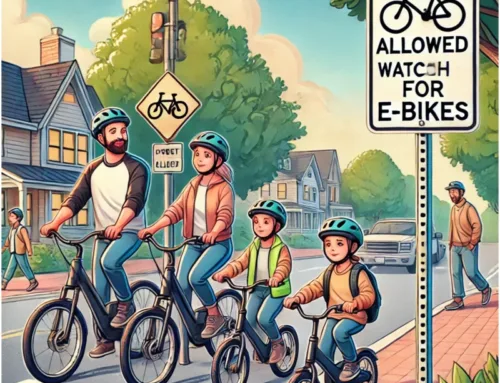If you’ve been hurt through the negligence of someone else, you have a right to seek compensation for your injuries – but the span of time you have to act is limited. New Jersey law allots injury victims a fixed span of time to seek legal remedy for the harm caused by another’s actions or failure to act. This restriction is referred to as the statute of limitations. You may have heard of this concept in reference to criminal acts, and how long after a crime has been committed the guilty party may be charged. The same concept applies to civil lawsuits: after the incident that caused the damages, the victim only has a certain length of time during which they may file a lawsuit before the statute of limitations elapses.
 Knowing this, insurance companies will sometimes try to run out the clock on injury claims, dragging out their claim investigation until you are no longer eligible to sue. This is one of the many reasons why it’s important to work with an experienced personal injury attorney from the very beginning of your case; your lawyer can file the necessary actions to initiate a lawsuit while you are still waiting for the insurance company to decide on your claim. Filing a lawsuit doesn’t limit your options in any way – if the insurance company accepts your claim and agrees to pay you a satisfactory sum, you can always drop the suit. In fact, beginning the lawsuit process may show the insurer that you and your attorney are serious about getting the fair compensation you deserve, and that you can’t easily be steamrolled by their legal tricks.
Knowing this, insurance companies will sometimes try to run out the clock on injury claims, dragging out their claim investigation until you are no longer eligible to sue. This is one of the many reasons why it’s important to work with an experienced personal injury attorney from the very beginning of your case; your lawyer can file the necessary actions to initiate a lawsuit while you are still waiting for the insurance company to decide on your claim. Filing a lawsuit doesn’t limit your options in any way – if the insurance company accepts your claim and agrees to pay you a satisfactory sum, you can always drop the suit. In fact, beginning the lawsuit process may show the insurer that you and your attorney are serious about getting the fair compensation you deserve, and that you can’t easily be steamrolled by their legal tricks.
So exactly how long is the statute of limitations for a civil lawsuit in New Jersey? The short answer is two years for personal injury cases, such as might result from automotive accidents, slip and fall incidents, or medical malpractice, and six years for contract claims such as Uninsured Motorist (UM) and Underinsured Motorist (UIM) claims. The long answer is more complex. There are certain exceptional circumstances that may extend or delay the statute of limitations, “pausing the clock” on the countdown of your eligibility to sue. There are also certain conditions that obligate you to act much more quickly in order to preserve your right to sue at all.
If the negligent party responsible for your injuries is a public entity, government organization, body, or employee, you are required to act promptly – within 90 days of the incident that caused your injuries – by filing a claim for damages with the appropriate government agency. Your attorney will know how to obtain this paperwork and where to submit it. Under these circumstances, you may not begin the process of filing a lawsuit for six months – after the Tort Claims Notice is filed, though the two-year statute of limitations still applies, further limiting your window of opportunity to file suit.
There are a few situations that may extend the statute of limitations, either by causing the clock to start counting down from a point other than when the injuries were first inflicted, or by suspending the countdown of the two-year time frame. An example of the first type is when the victim’s injuries are not apparent right away, or the fact that those injuries were caused by another party’s negligence is discovered at a later date. This circumstance often arises in cases of medical malpractice, as either the injury itself or the medical provider’s culpability in causing it is often not discovered until sometime after the initial injury occurs. It is, however, incumbent on the victim to prove that they couldn’t have discovered the injury any earlier.
If the victim knows about their injuries, there are a few reasons why the statute of limitations may be delayed, freezing the countdown on their right to sue. First, the injury victim is a minor. Sometimes a parent or guardian might sue on a minor child’s behalf, but the child has no control over whether or not this happens, so the law allows them the opportunity to sue in their own right if compensation has not been sought. The statute of limitations doesn’t start running until the injured minor turns 18 years old. Additionally, juveniles have 2 years from their 18th birthday to file a complaint for a personal injury negligence matter.
Similarly, if the victim sustains a disability or is legally declared mentally incompetent, the statute of limitations does not begin to elapse until the disability ends or they are deemed competent again. The third case occurs when the negligent would-be defendant in the lawsuit leaves the state of New Jersey before the victim is able to file suit. If this happens, the victim’s attorney will need to submit an affidavit declaring that it was impossible to complete service of process due to the defendant’s absence, and the statute of limitations will be tolled for the duration of the time the defendant is out of state and unavailable to be served.
Contact MyNJInjuryLawyer Howard P. Lesnik
If you or a loved one suffered an injury in an accident in NJ, you should contact an attorney familiar with handling these claims. An experienced NJ Injury Lawyer will know how to obtain medical records, videos, photographs, experts, locate witnesses and contact the insurance company so you can make a claim for your injuries.
My NJ Injury Lawyer Howard P. Lesnik, Esq. offers complimentary strategy sessions to address any issue or questions you may have for your injury claim in NJ.
Please contact NJ Injury Lawyer Howard Lesnik, Esq., immediately if you were involved in an accident. I personally handle NJ personal injury cases on a regular basis. Please contact me now by email, by phoning 908.264.7701, or by completing the form to the right to schedule your complimentary 30-minute strategy session. Call me direct and I will answer 5 questions that you have about your potential claim.







